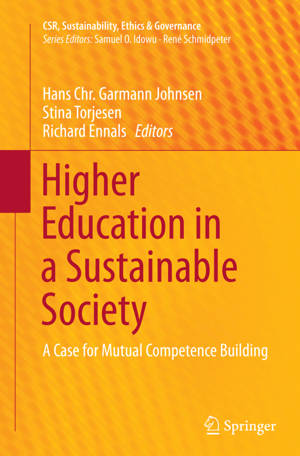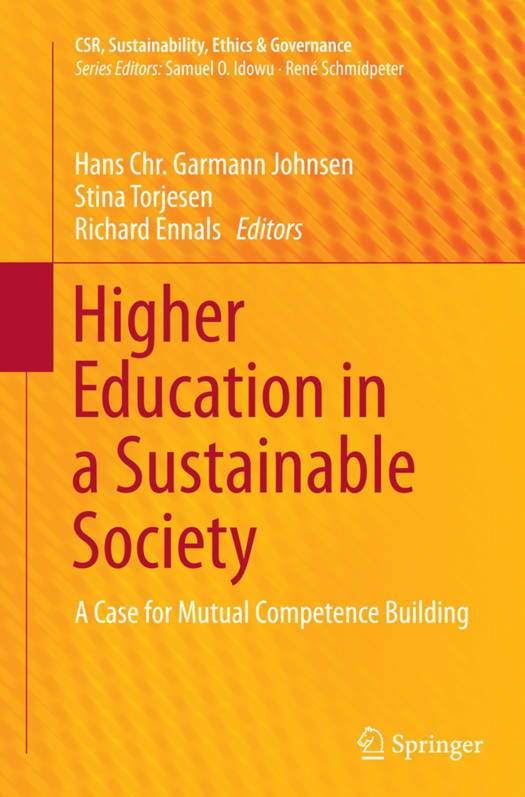
Bedankt voor het vertrouwen het afgelopen jaar! Om jou te bedanken bieden we GRATIS verzending (in België) aan op alles gedurende de hele maand januari.
- Afhalen na 1 uur in een winkel met voorraad
- In januari gratis thuislevering in België
- Ruim aanbod met 7 miljoen producten
Bedankt voor het vertrouwen het afgelopen jaar! Om jou te bedanken bieden we GRATIS verzending (in België) aan op alles gedurende de hele maand januari.
- Afhalen na 1 uur in een winkel met voorraad
- In januari gratis thuislevering in België
- Ruim aanbod met 7 miljoen producten
Zoeken
Higher Education in a Sustainable Society
A Case for Mutual Competence Building
€ 125,95
+ 251 punten
Omschrijving
This book addresses the following question: What is a sustainable society, and how can higher education help us to develop toward it? The core argument put forward is that the concept of sustainability reaches much farther than just the direct aspects of environmental threats and carbon emissions. Using higher education as a point of departure, the book shows that sustainability involves a broad range of disciplines, from nursing and nutrition to technology and management. It argues that a sustainable society entails a distinct perspective on society that influences our social thinking in terms of ethics, democracy and knowledge development. The book also discusses if (and if so, how) higher education can and should contribute to such a development based on the principles of the freedom of science in a liberal, democratic society. The book presents Mutual Competence Building as a concept higher education can adapt in order to contribute to a sustainable Society.
Specificaties
Betrokkenen
- Uitgeverij:
Inhoud
- Aantal bladzijden:
- 301
- Taal:
- Engels
- Reeks:
Eigenschappen
- Productcode (EAN):
- 9783319365886
- Verschijningsdatum:
- 6/10/2016
- Uitvoering:
- Paperback
- Afmetingen:
- 155 mm x 235 mm
- Gewicht:
- 498 g

Alleen bij Standaard Boekhandel
+ 251 punten op je klantenkaart van Standaard Boekhandel
Beoordelingen
We publiceren alleen reviews die voldoen aan de voorwaarden voor reviews. Bekijk onze voorwaarden voor reviews.








